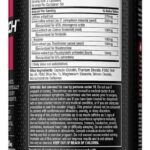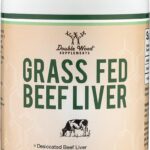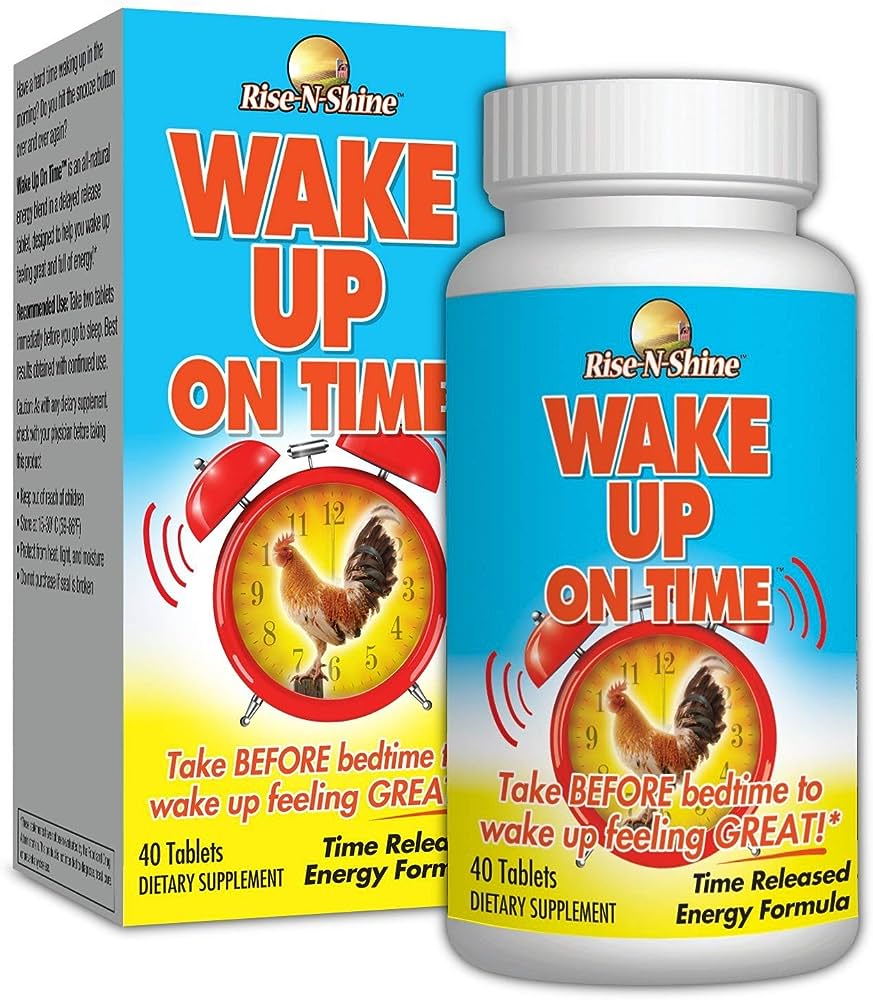Have you ever wondered if your health supplements expire? You know, those bottles of vitamins and minerals that have been sitting in your cabinet for months or even years? Well, you’re not alone. Many people are curious about whether or not their supplements have a shelf life. And the answer is, yes, they do. Just like any other product, health supplements have an expiration date, and it’s important to pay attention to it.
In this article, we’ll dive deeper into the topic of health supplement expiration dates. We’ll explore why they expire, how to determine if they’re still safe to use, and what can happen if you consume expired supplements. So, if you’re ready to learn more about the shelf life of your health supplements, keep reading.
When it comes to health supplements, expiration dates are there for a reason. Over time, the potency and effectiveness of these products can deteriorate, making them less beneficial for your health. In some cases, expired supplements can even be harmful. That’s why it’s important to check the expiration date before you consume any health supplement. It’s also a good idea to store your supplements properly, following the instructions on the label, to ensure they stay fresh and effective for as long as possible.
In conclusion, health supplements do expire, and it’s essential to pay attention to their expiration dates. Taking expired supplements can be ineffective at best and potentially harmful at worst. So, before you reach for that bottle of vitamins or minerals, make sure to check the expiration date and store your supplements properly. And for more information on this topic, stay tuned for our upcoming article on how to determine if your health supplements are still safe to use.
Understanding Health Supplements
What are health supplements?
Health supplements are products that are taken orally to supplement the diet and provide additional nutrients or other substances that may be deficient in an individual’s diet. These supplements come in various forms, including pills, capsules, powders, and liquids. They can contain vitamins, minerals, herbal extracts, amino acids, or other substances that are believed to have beneficial effects on health.
Why do people take health supplements?
People take health supplements for a variety of reasons. Some individuals may have specific dietary restrictions or preferences that prevent them from obtaining all the necessary nutrients from their diet alone. Others may take supplements to target specific health concerns or to support their overall well-being. Additionally, certain groups, such as pregnant women or older adults, may require additional nutrients to meet their unique needs.
What is Expiration Date?
What does expiration date mean?
The expiration date on a health supplement refers to the date until which the manufacturer guarantees the product’s full potency, efficacy, and safety when used as directed. It indicates the time frame during which the supplement is expected to retain its quality and effectiveness. After the expiration date has passed, the manufacturer no longer guarantees the product’s potency or safety..
Why do health supplements have expiration dates?
Health supplements have expiration dates for several reasons. Firstly, some nutrients and substances within the supplement may degrade over time, making the product less effective. Secondly, the stability of the active ingredients can be affected by improper storage conditions, such as exposure to heat, light, or moisture. Finally, expiration dates also ensure consumer safety, as expired supplements may contain potentially harmful bacteria or other contaminants.
Factors Affecting Supplement Expiration
Storage conditions
The way health supplements are stored can significantly impact their shelf life. Factors such as temperature, humidity, and exposure to light can all affect the stability and efficacy of the active ingredients. It is essential to store supplements in a cool, dry place and avoid exposing them to direct sunlight or excessive heat.
Type of supplement
Different types of supplements may have varying stability and expiration dates. For example, liquid supplements may have a shorter shelf life than solid capsules or tablets. Furthermore, supplements that contain probiotics or living organisms may have specific storage requirements to maintain their potency.
Formulation
The specific formulation of a supplement can also influence its expiration date. The type and concentration of active ingredients, as well as the presence of other additives or preservatives, can affect the overall stability and shelf life of the product. Manufacturers carefully consider these factors when determining the expiration date for their supplements.
Risks of Expired Supplements
Decreased potency
One of the primary risks of consuming expired supplements is a decrease in potency. Over time, the active ingredients can degrade, leading to a decrease in their effectiveness. This reduction in potency can result in individuals not obtaining the intended health benefits from the supplement.
Compromised safety
Expired supplements may contain harmful bacteria or other contaminants that have developed over time. These contaminants can pose a risk to consumer safety and potentially cause adverse reactions or illnesses. To mitigate this risk, it is crucial to dispose of expired supplements properly and avoid consuming them.
Effects on health
Consuming expired supplements may have various effects on an individual’s health. Depending on the supplement, the decreased potency or potential contamination can result in a lack of the desired health benefits or even negative health consequences. It is always advisable to use supplements within their expiration date to ensure effectiveness and safety.
Identifying Expiration Dates
Reading labels
To determine the expiration date of a health supplement, carefully read the product label. The expiration date is typically printed on the packaging, along with other important information such as the manufacturer’s contact details, recommended dosage, and storage instructions. Familiarizing yourself with the label and understanding the expiration date is crucial for proper supplement usage.
Understanding date codes
In some cases, rather than explicitly stating the expiration date, supplements may have a date code that indicates when the product should be consumed by. These codes can vary across different manufacturers, but generally, they consist of a combination of letters and numbers that represent the date or batch number of the product. It may be necessary to refer to the manufacturer’s website or contact them directly for clarification.
Consulting with manufacturers
If there is any confusion or uncertainty regarding the expiration date of a health supplement, it is advisable to contact the manufacturer directly for clarification. They can provide specific information regarding the expiration date and any storage recommendations to ensure optimal product quality and safety.
Proper Storage of Supplements
Temperature and humidity control
Proper storage of health supplements is vital to maintain their effectiveness over time. It is recommended to store supplements in a cool, dry place where the temperature is consistently moderate. High temperatures and humidity can accelerate the degradation of the active ingredients and reduce the shelf life of the product.
Avoiding exposure to light
Exposure to light, particularly direct sunlight, can also impact the stability of health supplements. It is best to store supplements in opaque or dark-colored containers to protect them from light. Additionally, avoid storing supplements near windows or areas with prolonged exposure to sunlight.
Storing away from moisture
Moisture can lead to the breakdown of the active ingredients in health supplements, rendering them less effective. To prevent moisture from compromising the product’s stability, store supplements in airtight containers and avoid areas with high humidity, such as bathrooms or kitchens.
When to Dispose of Expired Supplements
Knowing the signs of degradation
It is essential to be aware of the signs that indicate a health supplement has expired or degraded. These signs may include changes in color, texture, or smell. If the supplement appears significantly different from when you first purchased it or smells unpleasant, it is likely past its expiration date and should be disposed of.
Safe disposal methods
When disposing of expired supplements, it is essential to do so safely and responsibly. Check local regulations regarding the proper disposal of nutritional supplements, as some areas may have specific guidelines. In general, it is recommended to discard expired supplements in a sealed bag or container to prevent unintentional consumption, and then dispose of them with regular household waste.
Extending Supplement Shelf Life
Proper storage practices
By following proper storage practices, you can extend the shelf life of your health supplements. Store them in a cool, dry place away from light and moisture. Additionally, ensure that the containers are tightly sealed to prevent any air or moisture from entering.
Sealed containers
When purchasing supplements, opt for products that come in sealed containers or blister packs. Sealed packaging helps to protect the supplements from exposure to air, moisture, and contaminants, thereby prolonging their shelf life.
Regularly checking for signs of expiration
To ensure that you are consuming fresh and effective supplements, make it a habit to regularly check their expiration dates. By staying aware of the expiration dates and conducting routine checks, you can be confident in the quality and potency of your supplements.
The Importance of Fresh Supplements
Maximizing effectiveness
Using fresh supplements ensures that you are maximizing their effectiveness and obtaining the nutrients or other substances they contain. By consuming expired supplements, you risk receiving inadequate amounts of the desired nutrients, potentially rendering the supplement ineffective.
Reducing potential health risks
Expired supplements may contain harmful bacteria or other contaminants that can pose health risks when consumed. By using fresh supplements within their expiration date, you can reduce the potential for adverse reactions or illnesses.
Conclusion
Understanding expiration dates and practicing proper storage is crucial in maintaining the potency and safety of health supplements. By adhering to expiration dates, recognizing signs of degradation, and following proper storage guidelines, you can ensure that your supplements are effective and safe to consume. Remember to always consult with manufacturers when in doubt and prioritize fresh supplements to support your overall well-being.











